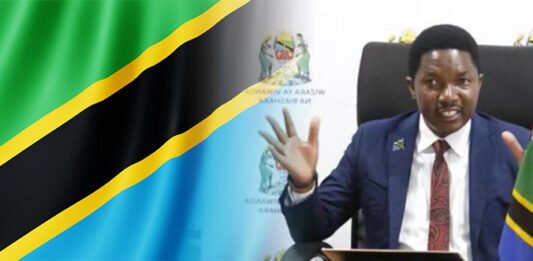The Government of Tanzania has officially ban non-citizens from engaging in 15 specific business activities, in a move aimed at safeguarding opportunities for local entrepreneurs and ensuring Tanzanians have access to small-scale and informal sector business opportunities.
The ban, which was formalized through Government Notice No. 487A, under the Business Licensing Act (Cap. 101). The order, known as the Business Licensing (Prohibition of Business Activities for Non-Citizens) strictly defines a “non-citizen” according to the Tanzania Citizenship Act and outlines the types of businesses that are now exclusively reserved for Tanzanians.
Ban Business Activities for Foreigners
According to the official order, foreigners are no longer allowed to engage in the following 15 business activities:
- General wholesale and retail trade (excluding supermarkets and specialty outlets)
- Mobile money transfers and related financial services
- Mobile phone and electronic device repairs
- Salon and barber services (except those geared toward the tourism industry)
- Home and office cleaning services
- Small-scale mining operations
- Domestic parcel and postal delivery
- Tour guiding (excluding licensed tour operators serving international tourists)
- Operation of radio and television stations
- Running museums or curio shops
- Acting as brokers in business or real estate deals
- Clearing and forwarding services
- Crop buying directly at farms
- Operating gambling or gaming machines outside licensed casinos
- Ownership or operation of micro and small industries
Penalties for Violations
The new regulation imposes strict penalties for those who violate the ban on non-citizens engaging in certain business activities:
Ban For Foreigners:
- Minimum Fine 10 million Tanzanian Shillings
- Imprisonment Up to six months
- Visa Consequences Revocation of visa or residence permit
Ban For Tanzanian Citizens:
Those found aiding or fronting for foreigners in the restricted sectors may face:
- Fine of 5 million Tanzanian Shillings
- Imprisonment Up to three months
This eradication follows rising tensions, especially in Kariakoo, Dar es Salaam’s busiest commercial district. Local traders have for years raised concerns over the increasing presence of foreign nationals particularly Chinese, Congolese, and Indian businesspeople allegedly dominating sectors that are legally reserved for Tanzanians. In response to these concerns, Minister for Industry and Trade, Dr Selemani Jafo, formed a 15-member investigative committee led by Professor Edda Lwoga. The committee conducted a targeted investigation in Kariakoo.
The government says this move is a strategic effort to Protect local entrepreneurs from unfair competition, generate employment for Tanzanian citizens, formalize the informal
economy, enhance tax and revenue collection and Curb illegal trade and counterfeit goods.
Exposing Illegal Business Operations by foreigners
During recent inspection of businesses, several important issues have been uncovered that raise significant concerns about compliance with local regulations:
Government Ban Task Force Operation
Recently, over 100 business premises have been reviewed, 183 individuals have been identified for violations and some offenders are currently facing deportation. Foreigners who currently hold valid business licenses in the now-restricted sectors will be allowed to continue operations until their licenses expire. However, renewals will not be permitted once those licenses lapse.
Conclusion
This bold move by the Tanzanian government reflects a growing trend in many African countries to assert economic sovereignty, protect local businesses, and control informal trade dominated by foreign nationals. As enforcement rolls out nationwide, both foreign investors and local facilitators are being warned to comply or face significant legal consequences.


























